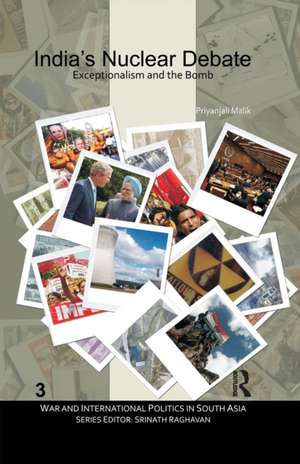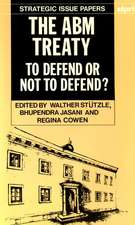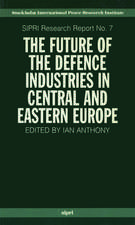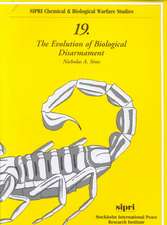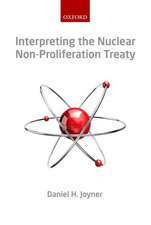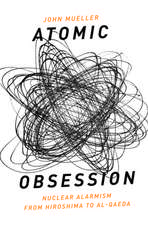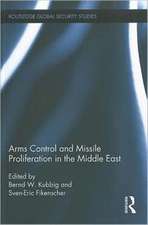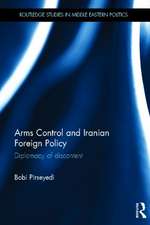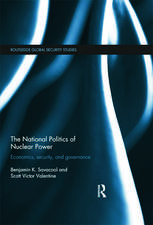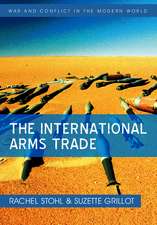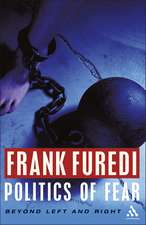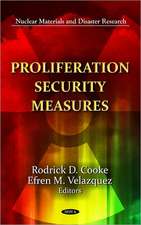India's Nuclear Debate: Exceptionalism and the Bomb: War and International Politics in South Asia
Autor Priyanjali Maliken Limba Engleză Paperback – 21 ian 2016
The study seeks to account for the shift in opinion by looking at the parallel processes of how nuclear policy became an important part of the public discourse in India, and what it came to symbolise for the country’s intelligentsia during this decade. It argues that the pressure on New Delhi in the early 1990s to fall in line with the non-proliferation regime, magnified by India’s declining global influence at the time, caused the issue to cease being one of defence, making it a focus of nationalist pride instead. The country’s nuclear programme thus emerged as a test of its ability to withstand external compulsions, guaranteeing not so much the sanctity of its borders as a certain political idea of it — that of a modern, scientific and, most importantly, ‘sovereign’ state able to defend its policies and set its goals.
| Toate formatele și edițiile | Preț | Express |
|---|---|---|
| Paperback (1) | 451.32 lei 6-8 săpt. | |
| Taylor & Francis – 21 ian 2016 | 451.32 lei 6-8 săpt. | |
| Hardback (1) | 1003.43 lei 6-8 săpt. | |
| Taylor & Francis – 23 feb 2010 | 1003.43 lei 6-8 săpt. |
Preț: 451.32 lei
Nou
Puncte Express: 677
Preț estimativ în valută:
86.36€ • 90.17$ • 71.31£
86.36€ • 90.17$ • 71.31£
Carte tipărită la comandă
Livrare economică 15-29 aprilie
Preluare comenzi: 021 569.72.76
Specificații
ISBN-13: 9781138662605
ISBN-10: 1138662607
Pagini: 354
Dimensiuni: 138 x 216 x 19 mm
Greutate: 0.5 kg
Ediția:1
Editura: Taylor & Francis
Colecția Routledge India
Seria War and International Politics in South Asia
Locul publicării:Oxford, United Kingdom
ISBN-10: 1138662607
Pagini: 354
Dimensiuni: 138 x 216 x 19 mm
Greutate: 0.5 kg
Ediția:1
Editura: Taylor & Francis
Colecția Routledge India
Seria War and International Politics in South Asia
Locul publicării:Oxford, United Kingdom
Public țintă
PostgraduateRecenzii
"[A] fine, meticulously researched and well-written book... This is a scholarly work through and through but the crisis of 2001-2002, the subcontinent’s equivalent of the Cuban missile crisis in terms of brinks and abysses beyond, is written up so vividly it has a touch of a chiller-thriller about it." - Peter Hennessy, "ueen Mary, University of London, UK; International Affairs 87:2, 2011
Cuprins
1. Introduction 2. Establishing India's Nuclear Rhetoric, 1947-1990 3. Creating a Nuclear Debate in the 1990s 4. Defining and Defending India, 1990-1996 5. Confronting the Nuclear Option: The CTBT and Sovereignty 6. Negotiating 'Nuclear India' after the CTBT 7. Defending Nuclear India 8.Conclusion: The Idea of Nuclear India
Descriere
By examining public discussions on India’s nuclear policy in the 1990s, this book seeks to account for how opinion amongst India’s attentive public shifted from supporting nuclear disarmament to accepting a more muscular policy, while also looking at what nuclear weapons came to symbolise in these discussions.
